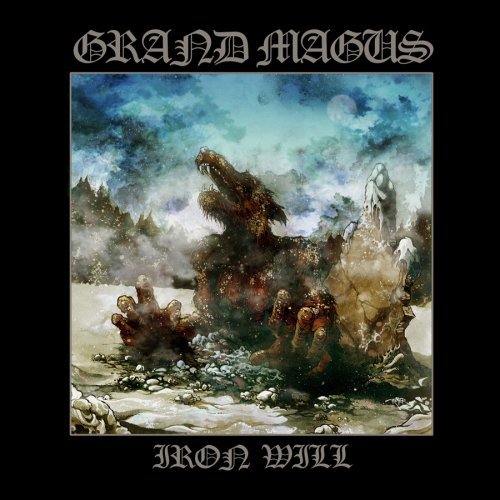
Album Review: Grand Magus & Electric Wizard Reissues
Having just released the excellent "The Hunt", Grand Magus sees two of their critically-acclaimed previous released reissued for fans who may have missed out on the band as they ascended to the top of the traditional metal ranks. The climb started with "Wolf's Return", the album that started to build a buzz around the band. Mixing elements of doom into a traditional metal framework, the album straddles the line between crushing riffs and the sound that would expand their horizons. "Kingslayer" could live comfortably alongside their newer material, a perfectly written bit of metal that brings strong melody without sacrificing its metal heart. The remainder of the album reigns in the energy, using tempo to expand the scope of the atmosphere. The title track is an amalgam of these approaches, an interesting song that is the fulcrum around which Grand Magus' career would turn. Others, like "Blood Oath" follow a similar blueprint with lesser results.
"Wolf's Return" was certrainly a solid record, one that showed promise, but it was an unfinished work by a band that was in transition. The guitar-work is uniformly excellent, as are the vocal performances, which encapsulate everything this type of metal is supposed to be. As with many albums, the effort to be epic comes across, and makes the album feel smaller than it should. It tries so hard to reach for the sky that it doesn't notice the ground falling away beneath its feet.
Grand Magus made their biggest statement with “Iron Will”, the album that turned them into one of the most lauded bands of today. Most of the doom elements that kept “Wolf's Return” from being truly great have been stripped out, leaving the music a lean slab of traditional metal in the early Dio vein. Again coming out of the gates firing, “Like The Oar Strikes The Water” is an uptempo blast with strong melodies anchoring the meaty riffs. The difference this time around is that the rest of the album better captures the spirit of classic metal, and even the few moments of doom, as in the middle section of “Fear Is The Key”, are better integrated into the sound.
“Iron Will” steps up the game in every respect, from the vintage but still crushing guitar tones, to a more impassioned vocal performance, to a set of songs that is more focused on steamrolling the listener. “Silver Into Steel” brings the best of Dio to mind, as the melody is a dead ringer for his cadence, and the song sounds as though it is a long-lost track of his.
“Iron Will” is not perfect, having a few moments that struggle to maintain the energy. “Self Deceiver” never gets going, stagnating through a collection of decent riffs without much of a song holding them together. It's still enjoyable, but clearly not at the same level as the songs surrounding it. Grand Magus made their name largely on the back of “Iron Will”, and it's easy to see why. It's an immensely likeable album of traditional metal filled with everything a fan could want; big riffs, big melodies, and nothing to get in the way of being pure metal.
Also seeing reissue is Electric Wizard's well-received 2007 release, "Witchcult Today". Recorded entirely on vintage equipment from the 70's, the album's sound, covered in a layer of grime, comes across like a long-buried relic just uncovered after years of decay. Listening to the droning doom is as though seeing through a cloud of smoke, the thick guitar tones buzzing around your ears, convincing you something went wrong as they were being recorded. The tone is fat, massive, and crackles like an aged record that hadn't been cared for. Everything sounds distant, from the most immediate thrusts to the purposely detached vocals. Easy listening this is not.
Individually, the songs are surprisingly accessible. The riffs pull from the old playbook, simple enough to be drilled into the listeners skull, sharp enough to open a hole for the demons of lesser metal to be freed. Notably, "Dunwhich", the only more up-tempo number stands out not just for the energy it brings to the album, but for almost being catchy in a conventional way. Heresy it may be, but Electric Wizard is not without their skill.
The problem with "Witchcult Today" is the nature of doom. The slower songs all bring similar riffs to the table, following the rhythmic blueprint established by the opening title track, inevitably bringing a sense of staleness by the time the 22 minute closing pair of epics can conclude. "Witchcult Today" is like a dense dessert; bite size pieces are interesting, but an entire serving can sometimes be overwhelming.

